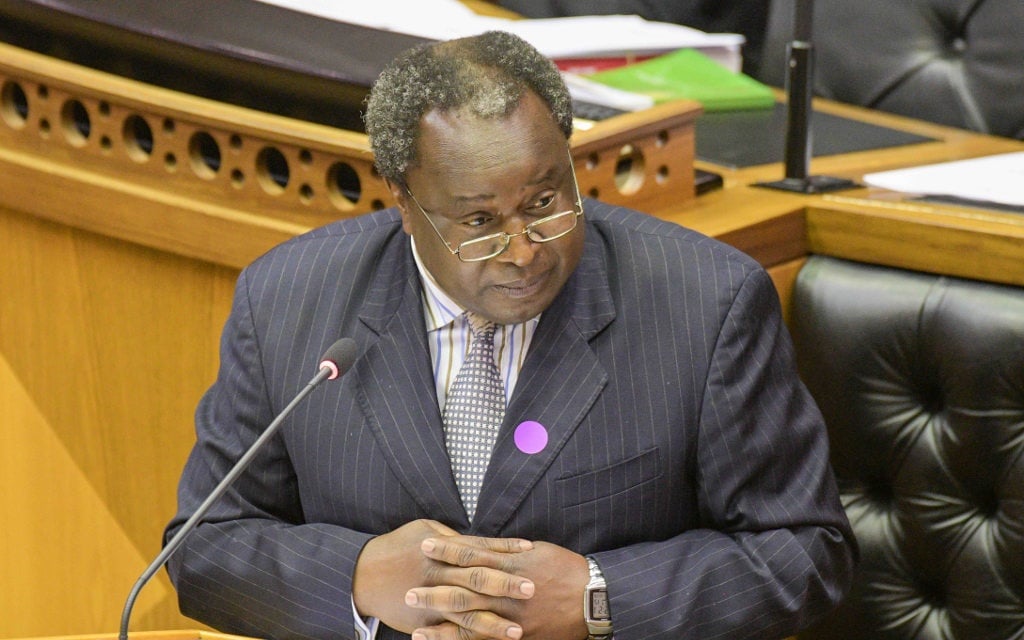
Taxpayers can breathe a sigh of some relief as Finance Minister Tito Mboweni tabled a 2021 Budget Speech free from substantial tax hikes aimed at bankrolling South Africa's Covid-19 vaccination programme.
The Budget Speech comes at the tail end of South Africa's second wave of Covid-19 infections and the economic ructions from a year of national lockdowns aimed at curbing the pandemic. It also comes as government prepares for the biggest vaccination programme in South Africa's history.
While recent challenges have forced government to re-evaluate the economic outlook of the economy in the Medium-term Expenditure Framework, long-standing challenges such as lacklustre growth, unemployment, the public service wage bill, and crippling debt were not forgotten in the minister's address.
Here are 8 more budget stories you need to read:
The Budget Review said total consolidated spending is expected to amount to R6.16 trillion over the next three years or R2 trillion each year over the medium term, with the majority of the spending going towards social services.
Vaccine funding
Government has set aside R19.3 billion to fund Covid-19 vaccines, in the interests of saving lives and supporting the economic recovery.
No new taxes have been introduced to fund vaccines – funding will be provided through budget allocations, emergency withdrawals and - if needed - the contingency reserve.
Vaccines will be rolled out free of charge for the majority of South Africans, while private providers will be able to claim back from medical aid schemes.
No increases in direct taxes
Government will not introduce hikes for personal income tax and corporate income taxpayers, in an effort to aid economic recovery and ease financial pressures on households and businesses.
The state had a revenue windfall in the latter part of 2020, brought about by increased corporate income tax receipts from mining companies coming off the back of improved commodity prices. Improvements in consumption and wages also bolstered revenue.
The tax revenue shortfall is now expected to stand at R213 billion, lower than the R312 billion projected during the Medium-term Budget Policy Statement tabled in October last year.
Government has also withdrawn a proposal to raise R40 billion in additional revenue over four years.
Hikes on indirect taxes
Government will levy an 8% increase on excise duties for alcohol and tobacco products in order to discourage their consumption and promote good public health.
Some SOEs face debt defaults
National Treasury highlighted that state-owned enterprises (SOEs) suffered a deterioration in their financial performance, partly owing to the impact of the Covid-19 pandemic and the associated lockdowns.
Many SOEs risk defaults, Treasury warned. Just last year, the Land Bank defaulted on its debt. Last year, the bank was allocated R3 billion in the 2020 special adjustments budget. The October Medium-term Budget Policy Statement also highlighted it would require R7 billion to support the restructuring of the entity.
Softening the blow
Mboweni said despite government efforts to boost job creation and soften the blow for those who lost their jobs in the past year, the unemployment crisis in South Africa shows little sign of letting up.
The Budget Review said R12.6 billion was allocated to various sectors to create about 694 000 short-term jobs in the 2020/21 financial year and that this programme is expected to continue in the 2021/22 financial year.
The Budget Review said the outlook remained uncertain and the economic effects of the pandemic would continue to be far-reaching. It said R11 billion to the public employment initiative in 2021/22. By January 2021, the initiative had created 430 000 temporary jobs and aims to create another 180 000 by March.
Rage over wages
Mboweni said savings in public service wages could be achieved through doing away with annual cost-of-living adjustment in the public service until 2023-24, reduced head counts, early retirement, natural attrition and the freezing or abolishing of non-critical posts.
At least two unions legally challenged the failure to honour the previous wage agreement and it is currently before the Constitutional Court, after the Labour Appeals Court dismissed an application for government to be compelled to honour that agreement.
"A three-year inflation-linked agreement would raise the total shortfall to R112.9 billion by 2023/24. And an agreement similar to the one achieved in 2018 – one percentage point higher than inflation – would create a compensation shortfall of R132.7 billion (or 2.2% of GDP) by 2023/24," the review said.
According to the Budget Review spending programmes circular, the fastest-growing functions over the medium-term are economic development, community development and general public services, with spending on health amounting to R248.8 billion in the 2021-22 financial year.
The debt ditch beckons
The Budget Review said debt-service costs were higher than the 2020 Budget estimates by R3.6 billion in the 2020/21 financial year, R11.3 billion in the 2021/22 financial year and R17.9 billion in the 2022/23 financial year.
It expects debt-service costs to continue their increase at an annual average rate of 13.3%, reaching R338.6 billion in the 2023/24 financial year.
"Due to the higher budget deficit, coupled with fluctuations in interest, inflation and exchange rates, debt-service costs will continue to rise over the medium term," the Budget Review said.
The Budget Review said gross national debt was projected to grow continuously over the long term, despite 2020 budget proposals to reduce expenditure growth. The review said strategies to contain debt would be monitored regularly by the minister.
